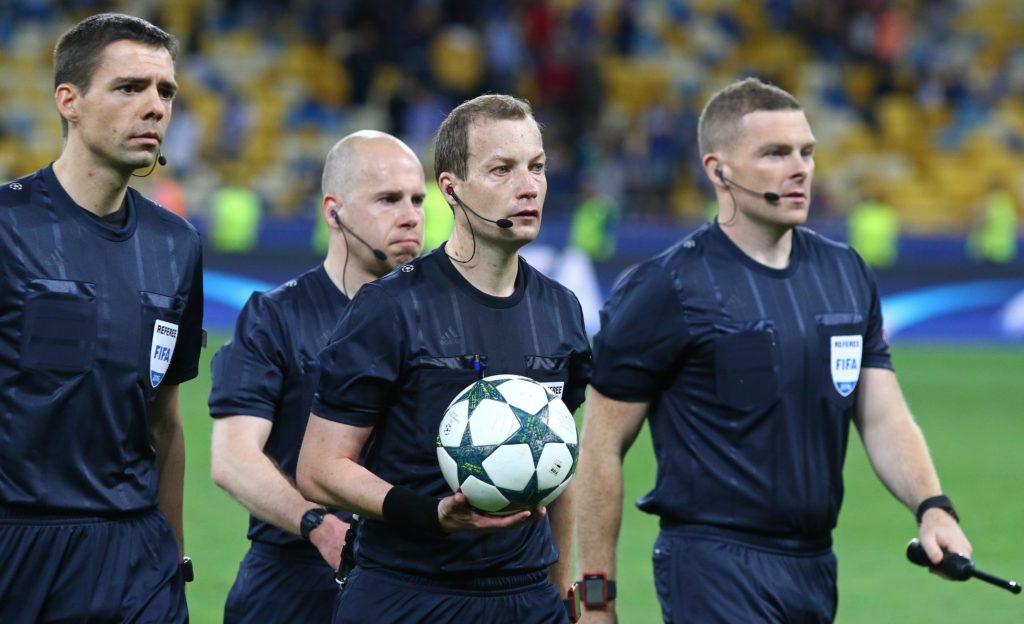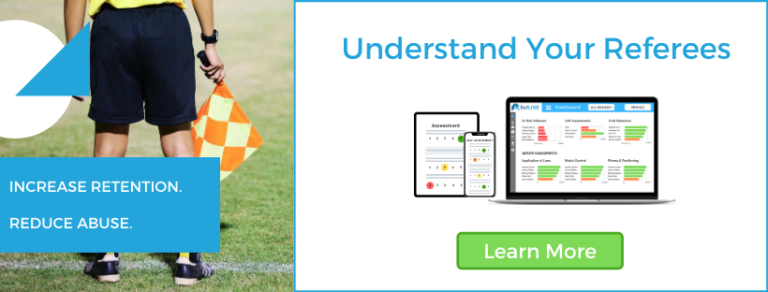Making quick decisions is essential in the fast moving, dynamic fixtures we officiate. Quite often we are required to make fast decisions, sometimes within milliseconds, in order to deliver successful outcomes. Referees who master the skill of quick, decisive decision making tend to dictate the flow of the game, feel in control and confident, and are able to facilitate the game being played at the highest possible standard.
Of course, the opposite of decisive thinking is overthinking and second-guessing. Officials who second-guess their decisions, over-analyse situations within games, and lack trust in their ability to make the right decisions. Over-thinkers are afraid to make mistakes so they hesitate before acting, providing the opportunity for subsequent foul play to occur.
You don’t have a lot of time to consider your options in a game being played at full speed, especially as an assistant referee when a ball is being played over the top to a forward trying to beat the offside trap. You only have about 0.32 seconds to take that mental picture of where the forward was in relation to the second-last defender.
Similarly, a ball kicked at 70mph ball takes approximately 0.51 seconds to hit a defending player. That’s not a lot of time for the referee to identify the body shape of the defender, point of contact or whether it was an attempt to deny a goal scoring opportunity. You don’t have time to think, only react. Now the importance of quick decision-making during a game is clear.
Is it possible improve the mental skill of decision making and, if so, how?
In answer to the first part of the question, if decision making is a skill, then yes, it can be improved with consistent repetition over time. How? The answer may seem obvious but practice under game-like conditions, this could be an activity such as making shuttle runs then viewing a video once at full speed and making a decision on the basis of what you’ve seen. The key is to keep working on your decision making capabilities until that skill becomes reflexive (like riding a bike).
From an athlete’s perspective, United States Olympic men’s Fencing team member, Eli Dershwitz is the youngest in the group and the highest ranked sabre fencer in the United States. Dershwitz is known for thinking quick on his feet, this is critical because many bouts are often decided in under 60 seconds.
“It’s a lot faster-paced — fast reactions, fast touches, a lot of sprints. That always got to me, the amount of physical and mental ability it took at the same time, to be able to be explosive but also to be able to react quickly to what your opponent was doing.” – Eli Dershwitz, United States Olympic men’s Fencing team
The key to Dershwitz’s quick decision making is the amount of time he dedicates towards developing that mental skill until it becomes second nature. He has put in a lot of work so he can rely on lightning fast decision making instead of a slow laboured thought process that interferes with the body’s ability to react quickly. Dershwitz will need to rely on his quick decision making if he plans to land on the podium in Tokyo.
“I am just looking forward to putting all the hard work and dedication, all the hours of blood, sweat, and tears over the years, into one great tournament.” – Eli Dershwitz, United States Olympic men’s Fencing team
Ways to develop your quick in-game decision making
Practice leads to improvement, so this 4 step plan can provide structure:
- Practice being decisive when training by doing drills at game speed.
- Try to create pressure-packed game situations in training.
- Review your progress after training and determine if you need to make any adjustments.
- Repeat this process during your next training session incorporating any adjustments identified last time out.
At The Third Team I work individually and in collaboration with different professionals where I have developed workshops associated with Resilience and Mental Toughness Development to help referees. The workshops are interactive, where referees are encouraged to open up and share their experiences to help each other.
Feel free to contact me if you’d like to know more about my workshops and how I could help you or your officials.
Best Wishes,

Nathan Sherratt
Referee Educator & Managing Director of The Third Team

Nathan Sherratt
Nathan Sherratt, Referee Educator, Resilience Trainer and Managing Director of The Third Team. A Mental Toughness Practitioner based in County Durham, North East England.


